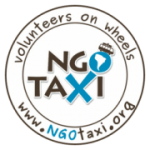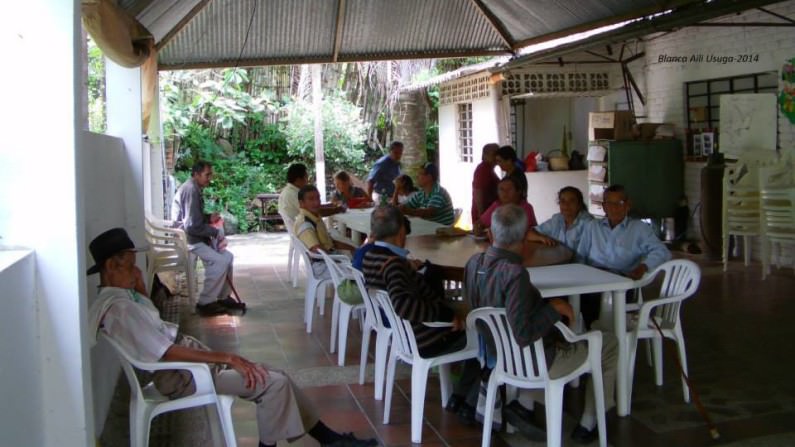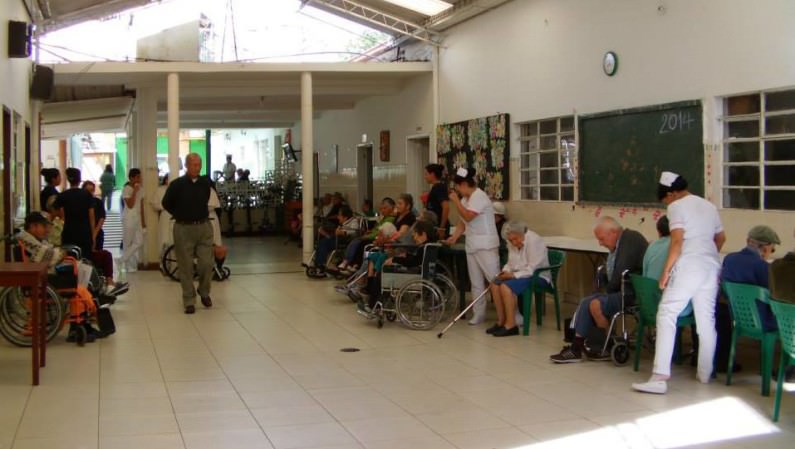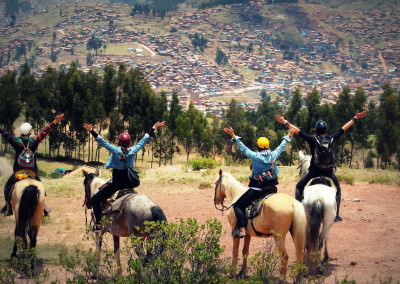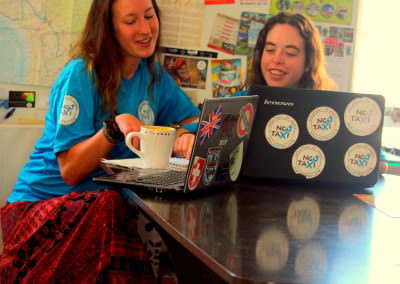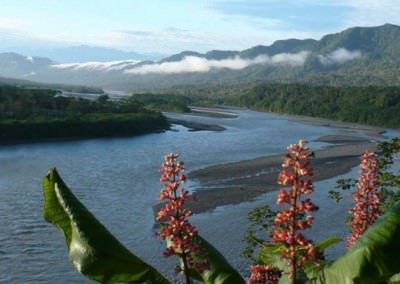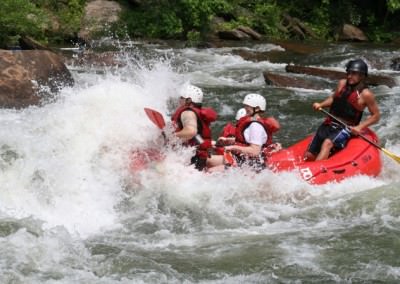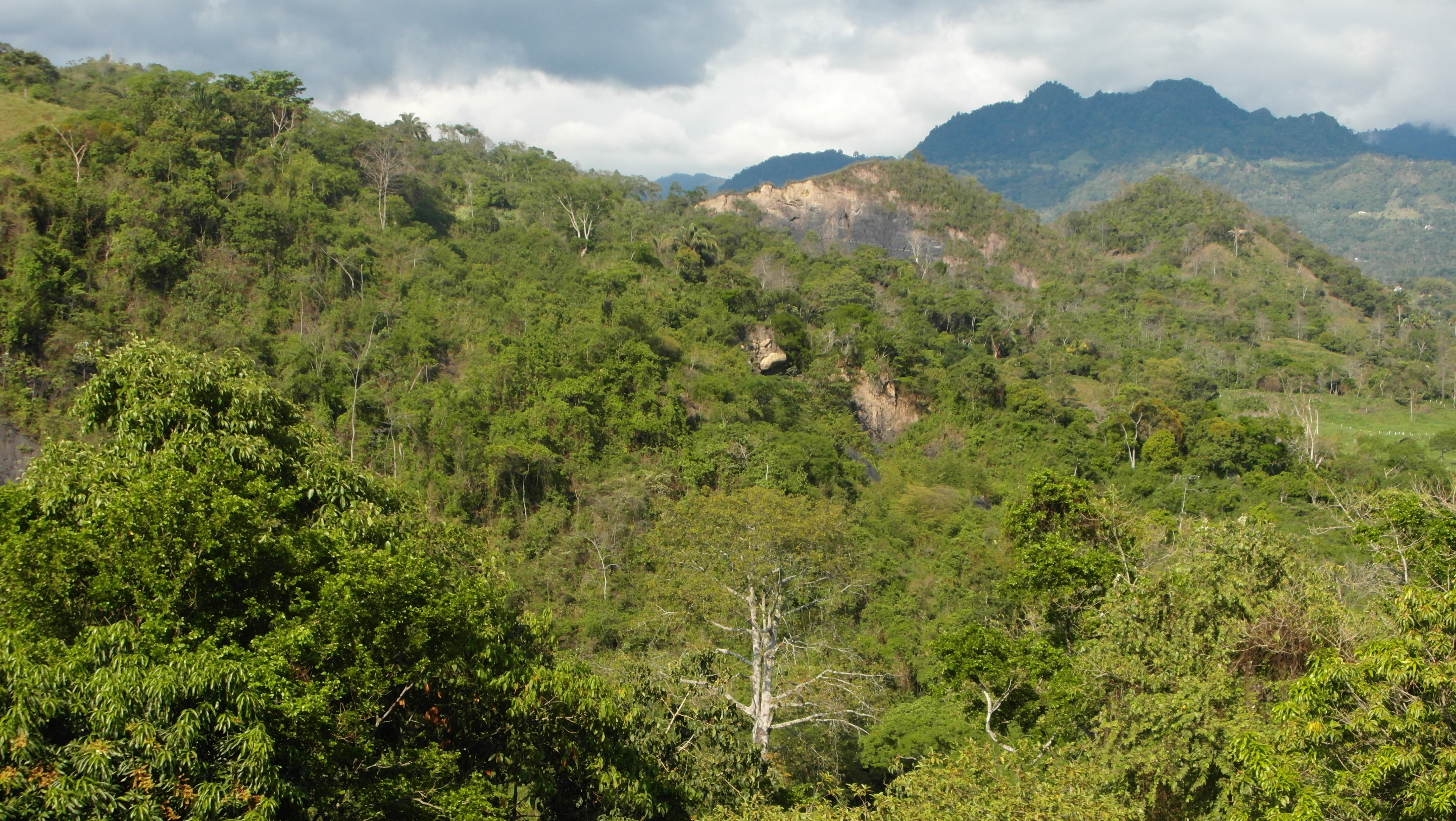
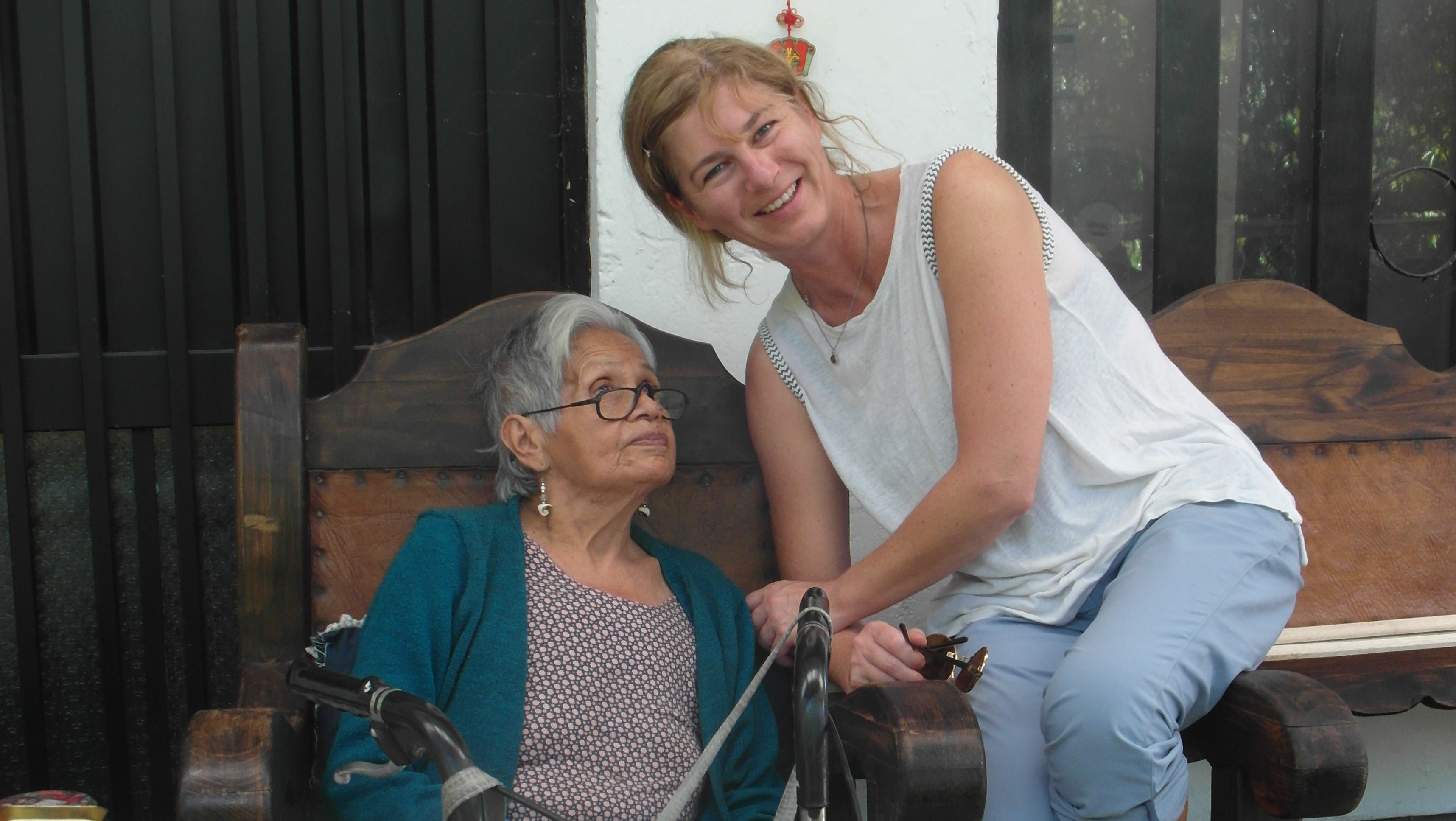
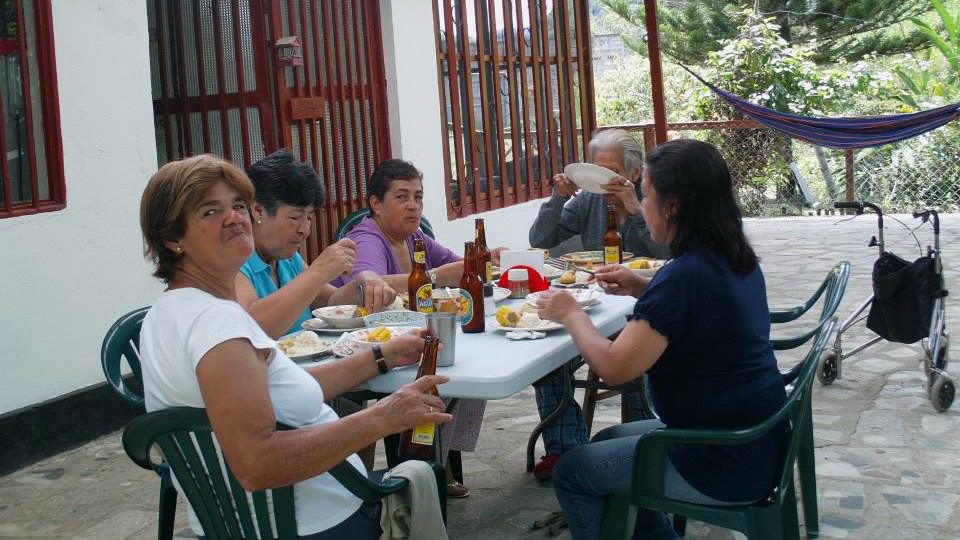
Bring Laughter Back Into the Lives of Disadvantaged Elderly People Whilst Learning about Colombia's Recent History First Hand!
Would you like to lend a much-needed hand in the area of social care on a part-time basis, whilst still having plenty of time to explore and discover the fascinating and diverse country of Colombia, filled with incredibly welcoming people and stunning landscapes? Are you interested in social care, or are you a social care worker? Do you have a big heart and do you enjoy seeing people smile again? Equally, are you interested in learning, from eye witnesses, about the historical, economical, and political events in a country formerly so much shaken by social disturbances?
Although a country which is rapidly growing more developed, the Colombian social healthcare system is poor and there is still great scope for improvement. Come with us to put the smile back on someone’s face!
This project is part of our Colombia Volunteer Circle, in which you can combine up to four projects located in the same region into one comprehensive program.
Pricing
€ 1479,00 – first month
€ 1429,00 – second month
€ 1379,00 – third month, and after
CHANGE THE LIVES OF DISADVANTAGED ELDERLY PEOPLE WHILST LIVING IN BEAUTIFUL COLOMBIA!
Included Services
- Accommodation and three meals a day (Mon-Fri; one meal on a Saturday and none on a Sunday).
- Pickup and transport from airport.
- Pre-arrival welcome pack.
- Welcome Dinner.
- Complimentary t-shirt.
- 24 hour support.
DETAILS
Project Description
Problems:
Colombian citizens of more than 65 years of age number approximately 5.2 million (around 11% of the total population) – an amount which is only set to grow – and are the most vulnerable age group to poverty in the whole country. This is because only around 1 in 4 men, and 1 in 7 women, receive a pension, and there is very little (and very expensive) public care available. Most, therefore, must either find any type of work possible or rely on their families or the kindness of strangers to look after them in their twilight years. Their problems are exacerbated when younger generations of their family move to the cities in search of the modern dream, and they are left to fend for themselves.
The region in which this project is based is lucky in that elderly care is available – for many of the elderly residents of the community the food provided at the center will be the only thing they eat all day, and the people they see there the only social interaction they will get. However, the center is run by local volunteers, all in their later years themselves, and some basic funding from other authorities. Because of this the center is often understaffed and always underfunded, so not all attendees can be given the level of care they need, and certainly not the entertainment or stimulation. More help is needed to make sure these individuals are not abandoned to isolation or despair during the last years of their life.
Solutions:
The attendees of the center need more one-on-one care, social interaction, and stimulation, whilst the current voluntary staff need to have some of the burden taken off their shoulders. By helping in the center volunteers are improving the quality of life for the attendees and supporting the staff with their daily tasks.
Short-term plans: To bring some life and happiness into the center by providing companionship to the people who use this service. To help buy and prepare delicious meals for them to eat. To help staff with daily chores and errands.
Long-term plans: To increase the number of elderly people that benefit from this project. To teach them useful skills so that they can be more independent. Once there are funds, to do some restructuring of the building, like waterproofing the new roof and installing a new kitchen.
Volunteer Responsibilities
Your duties will be dependent upon the medical/social care experience and training you have, but the most important task for every volunteer will be listening to, talking with, entertaining, and interacting with the attendees. Your duties will include:
- Providing entertainment for the attendees – any kind of gentle physical activity; group activities such as singing, exercises, games, and conversation; playing board games; reading to the attendees; overseeing art projects; doing jigsaws or puzzles, etc.
- Talking and listening to the attendees; reassuring them that someone cares about them. You will be rewarded with some fascinating local stories and personal histories!
- Teaching the attendees new skills with which to become more independent.
- Helping to feed the attendees.
- Assisting the current staff with meal preparation.
- Maintaining a high cleanliness standard within the communal areas of the center.
- If you have the professional expertise, helping to undertake basic health checks (blood pressure, weight, sugar levels) and educate the attendees about how to maintain good health.
- Running errands for the staff, e.g. food shopping.
- Once there are funds, helping with the upkeep and modification of the building (installing a new kitchen, etc.).
- Project reporting and monitoring.
The exact tasks you will be asked to carry out will depend on the current needs and priorities of the project as determined by the project organizer and NGO Taxi management. The tasks stated here are therefore examples of some of the possible types of activities you will be asked to do.
Work hours:
Please note that this is a part-time voluntary position, as the center is not always open due to lack of funds or staff, and when it is, it only opens for a few hours a day. You will work between two and four hours a day, Monday to Friday, when the center is open. Start times are liable to change frequently. You will be advised of the exact timetable when you arrive.
Location
Your project is located in a small village, which is also where your accommodation is, 2 hours from Colombia’s capital, Bogotá. This village is close to a larger town, which has shops, internet cafes, restaurants, ATMs, and night life.
Transportation
Buses from the village to the town leave frequently throughout the day and cost around COP $2500 per trip, taking about 30 minutes (not included in the project fee). There are also plenty of taxis (including mototaxis). In all cases the project leader can offer their own transport, a car for a total of five people, for a small fee. There are also very frequent buses to Bogotá, run by a handful of companies, and to several nearby towns and villages.
Accommodation and Food
You will stay in the house of the project organizer. The area is fairly rural but all basic amenities are available. The house is split into two, with the project organizer and their parent living in the main house and the volunteers sharing the bungalow (which includes 2 bathrooms). There is also a garden and outside sitting/dining area. If there are more than 4 volunteers private rooms will not be available.
The internet can be very slow, although if you need to you can take the short bus ride into town to use the internet cafes there.
You will be provided with 3 meals a day from Monday to Friday. On a Saturday you will be given one meal (all of these will be shared with the family), although none will be provided on a Sunday. The project organizer is very happy to provide for any special dietary requirements (vegetarians and vegans, celiacs, any allergies or intolerances, etc.) if advised before you arrive. You are welcome to use the kitchen to prepare your own meals, as long as you keep it clean and tidy, or to eat in the restaurants in the village or town. If you choose to eat any meals not provided by the project organizer these will be at your own cost.
Prerequisites
Professional requirements:
In general, all that is required of you is to be enthusiastic, willing, and prepared to learn new skills, displaying a hardworking attitude and respect towards the local community and those you will be living and working with.
Any experience in social work with older people or formal training in such would be a huge boon to this project. Patience, kindness and warmth are needed when dealing with attendees at the center. Volunteers for this project in particular need to have a can-do attitude and a well-developed ability to work autonomously and take the initiative, as, due to the lack of sufficient staff, they cannot always be well supported. This is a fantastic project for those considering a career in social care to get some first-hand experience of what working in an elderly care facility really entails! Likewise, it is an extremely rewarding project for those already trained and wanting to really help improve the standard of social care in a developing country.
Generally, you should be ready to respond to changes and be able to deal with the unexpected for any work or travel in South America. For this program in particular, you should be willing to live and work in areas where the standard of living is much lower than that in the EU or US.
Language requirements:
You must have at least a conversational level of Spanish for all of these projects, as few local people speak any more than basic English, if any English at all. However, the project organizer has a very good level of English, having lived in England for several years, and can help you if you have any problems. Having said that, there would be little point in volunteering in another country if you could not communicate with the people you live and work with. After all, the better the Spanish you speak or learn before you arrive the more you can bring of yourself to the project, the more you can communicate and understand, and the more you will get out of your volunteering experience. In any case, you will be amazed how much Spanish you will learn by simply living and working in another country. We can help you with this! We offer a wide array courses suited to your level, including specialized courses, for as many course weeks as you require. Please see https://ngotaxi.org/language-course/ for more information.
Additional Information and Specials
Minimum age:
18 years
Start dates:
1st or 3rd Sunday each month.
(Individual arrival dates possible, surplus applies).
Length of stay:
Beginning at 4 weeks.
Immunizations:
It is absolutely necessary that you have current immunizations. This includes, among others: yellow fever (certified), tetanus, typhoid, diphtheria, hepatitis A and B, and rabies. You’ll receive exact information pertaining to immunizations needed in Colombia, as well as your personal preliminary documentation, following your successful application with us.
You can inquire in advance concerning immunization requirements by consulting medical authorities in your country of origin, e.g. in the US, check with the Centers for Disease Control and Protection
http://wwwnc.cdc.gov/travel/destinations/traveler/none/ecuador.
Please make sure that you have up-to-date vaccinations for all of these diseases. NGO Taxi cannot be held responsible for the provision of vaccinations for their volunteers. It is the responsibility of the volunteer to ensure that they have followed up-to-date medical advice.
Included services:
- Accommodation including bedding.
- Three meals a day (Mon-Fri; one meal on a Saturday and none on a Sunday).
- Pick up and transport from airport.
- Pre-arrival welcome pack.
- Welcome Dinner.
- FREE NGO Taxi t-shirt.
- 24 hour support.
- Certificate of successful volunteer participation on your project.
Excluded services:
- Daily transport to and from your project site.
- Weekend or non-organized activities.
- Snacks and non-mealtime drinks.
- Travel insurance.
- Personal spending.
- Any additional items not listed in the ‘Included Services’ list.
Special Conditions:
In general, you must bear in mind that you will be representing NGO Taxi to communities and project partners and are therefore required to demonstrate a professional attitude.
Please keep your clothes clean, wear your hair up, keep your nails short and unpolished, and remove all piercings and jewellery. This is for biosecurity reasons – we want to keep the day center clean and sanitary – and to set a good professional standard. Lightweight long sleeves and trousers are recommended for the area, as it can get very hot and there are mosquitoes.
You will need to provide a criminal background check, medical records, proof of travel and medical insurance, and any professional certificates or proof of vocational qualifications you may have.
During this program, you will be in contact with a lot of people. However, you might also be the only volunteer working with local staff at times, so be prepared for variety in the people you will meet and work with.
Free Time Activities
NGO Taxi provides tours in other areas of Colombia, such as the Lost City trek or a trip to Punta Gallinas. Sounds like the thing for you? Then take a look at our page https://ngotaxi.org/tours/ for more information!
And if you want to explore this fascinating and diverse country on your own, may we suggest…
- Joining a graffiti tour in Bogotá, one of South America’s graffiti hotspots, and learning some fascinating facts about this hugely diverse and socially expressive art form (highly recommended!).
- Visiting the underground salt cathedral of Zipaquirá.
- Taking a trip to the beautiful colonial town of Villa de Leyva.
- Experiencing the famous nightlife of Medellín and Bogotá.
- Testing your moves on the dance floor in the Colombian, possibly even South American, capital of salsa: the city of Cali.
- Staying on a coffee finca in La Zona Cafetería.
- Seeing some of the amazing archaeological remains of San Agustin and Tierradentro.
- Hiking in the glorious Tayrona national park.
- Watching the famous Barranquilla carnival.
- Exploring the Caribbean coast, including a day trip to Las Islas Rosarios off the coast of Cartagena.
- Meeting indigenous communities or taking a survival training course in the Amazon.
